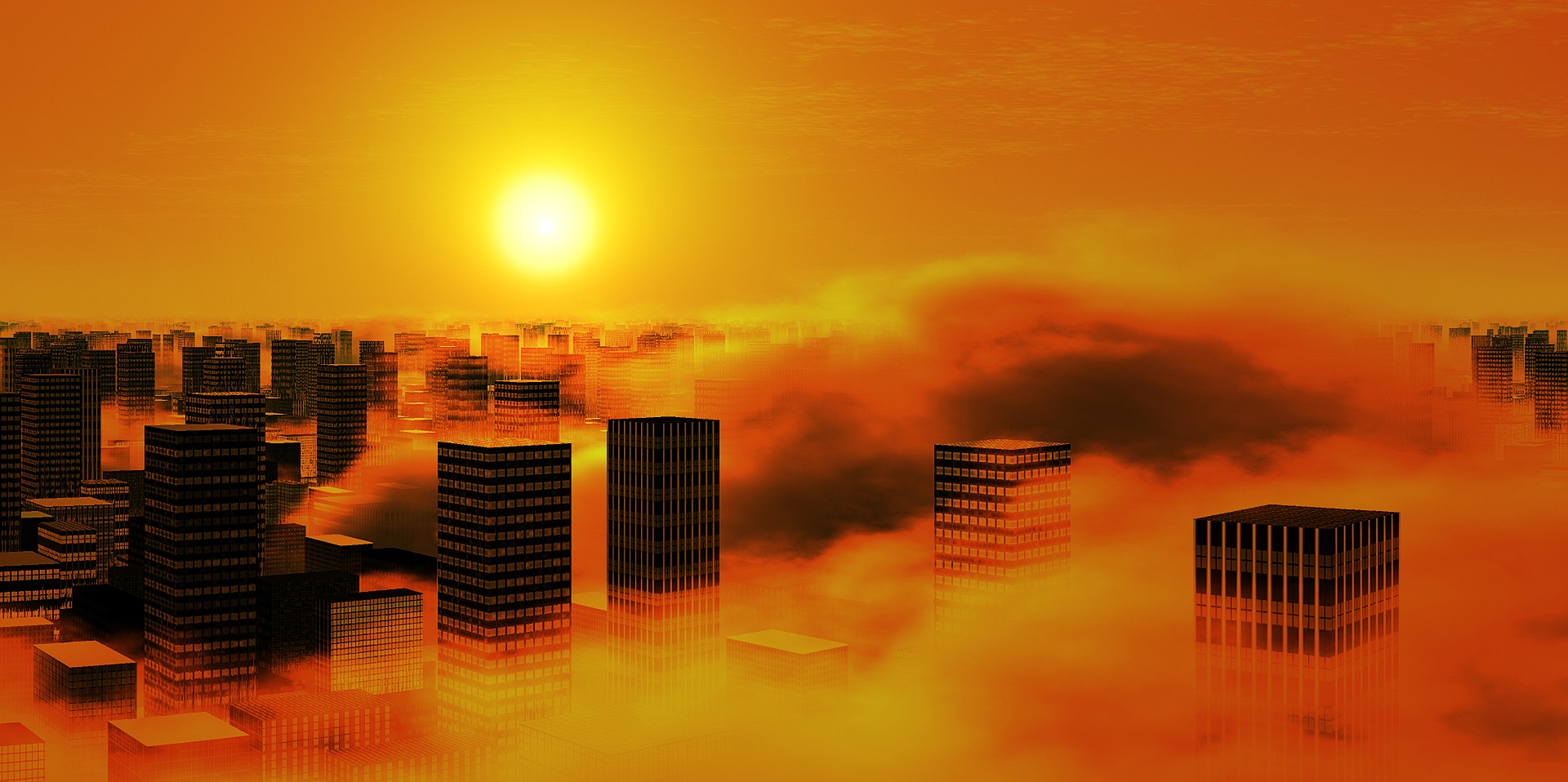Pollution in the 21st century is a major problem. It’s comparable to the Black Death and we need to do more to fix it. In the 14th century, when this pandemic was at its peak, it managed to kill about half of Europe’s population. Interestingly enough, in recent decades about 150 million lives were lost to air pollution. The numbers are growing year-by-year and are reaching an all-time high, with scientists, doctors, and activists sounding the alarm.
Modern-day studies clearly show how cutting-edge and traditional medicine are concerned about the issue of clean air more than ever before. The results have shown that, in most cases, the level of harm caused by global air pollution to the health of the average person is very serious.
Currently, the main focus of air pollution is in South and East Asia.
The region has been seeing environmental changes for some time now largely thanks to the unrestrained development of their economy. The quick industrial growth, coal production and the population increase of cars – this all leads to a significant depletion in natural resources and emits less than clean air. Toxic air pollution is low in developing countries but high in India and China. More than 1.2 million people die of air poisoning annually in these two countries.
It may be surprising that Russia, despite being full of forests, has a substantial ecological problem. You could think it would be the opposite, but this is not the case. Various regions are reporting on new pollution cases and it is something to be worried about.
There was a man-made accident in the Bashkir city of Sibay in January 2019. The release of toxic substances from the Uchaly MSMPP mines into the atmosphere led to wide publicity. For months, the people in Sibay have been suffering from smog and smoke, which many of them complain of stuffy noses, coughs, headaches. Finally the city court found the company guilty to this incident but work to eliminate this accident still continues.
Air pollution was once the responsibility of the owners of enterprises up until the middle 20th century in Europe and North America. These days, employees are more closely monitored to avoid any misdemeanors. In recent decades, the development of industry and technology has made it difficult for authorities to control air pollution successfully – new industrial risks have cropped up that don’t match the original regulations.
Governments in industrialized nations realized the need to control air pollution before it got too far out of control after the “Great Smog” of 1952 in London. For five consecutive days, a poisonous fog, mixed together with smoke and soot, suffocated all of the inhabitants of the city. More than 12 thousand lives were lost locally due to poisoning and only 10 years later did laws come into existence in most European countries and in America legislating for quality clean air.
These principles apply in all WHO member countries, however, some developing countries that are the main source of air pollution are not included in their list and must abide by national laws related to clean air. Despite the efforts of social activists and nonprofits, local air pollution levels in India and China retain a global lag – with industrial arbitrariness leading to skyrocketing deaths.
At a time like this, citizens can take the initiative to help curb the pollution problem. The World Air Quality index is a large, non-commercial project which let’s you see the current level of air pollution. It is created by a group of independent experts from Beijing.
Pollution from industry is the most high-risk to the environment. Advancements in greener technology have changed the way we live. For example, electric cars and government recycling programs are decreasing the amount of pollutants and junk in our homes. However, companies that produce and extract natural gas still create around 30% of the Earth’s greenhouse emissions. At the same time, the disruption caused by our ever-increasing dependency on technology and the corresponding level of toxicity are growing.
Air quality has a significant impact on human health. The environment is something that we, as humans, depend on for survival. So in turn the health of our home will greatly affect out wellness and often may even determine our entire lifespan. Dangerous pollutants in the air can enter your blood easily, causing both respiratory diseases and neurological disease.
A national government may send its population official letters in the language of administration. This can lead to an environmental situation that appears increasingly frightening. The state is currently considering steps to improve air quality, which every individual faces in their daily lives – this means protection methods must be taken into account in order to make up for the effects of air pollution.
The best way to deal with air pollution is by practicing a healthy lifestyle and avoiding negative habits like smoking – it’s the only way to maintain your health.
You should exercise at least once a day to keep your body’s natural defenses up and help it function optimally. Try not to do it outdoors because you don’t want to be exposed harmful pollutants.If you often go to the gym in the mornings or evenings, don’t go during daytime as this is when levels of air pollution are at their worst. When going on a jog or riding your bike, avoid busy roads- traffic emissions can affect the quality of air.
To protect your body, you need to include foods rich in vitamins A, C and E into your diet. Vitamin A helps maintain the healthy tone of the mucous membranes which is necessary for respiratory organs and gastrointestinal system. It also provides antioxidant protection. Vitamins C and E are powerful antioxidants that help cells fight oxidative stress. Having cells resist the damaging effects of free radicals is important, since they we have to be on guard all the time and they can’t be expecting attacks.
Install an air filter to keep pollution out of your home. Another useful purchase that’s often recommended is a humidifier or ionizer. These devices are used to neutralize allergens, which means you can keep your floor and pillows cleaner for longer. Wet cleaning should be done at least twice a week.
Getting some indoor plants to reduce the carbon dioxide concentration in your room can really help. Make sure to get chlorophytum or aloe, which will help remove formaldehye and geraniums or citrus trees which have antibacterial effects.
Halopolygiene sessions or a Salt cave visit can help prevent respiratory problems, as well as protect you from the effects of air pollution.


